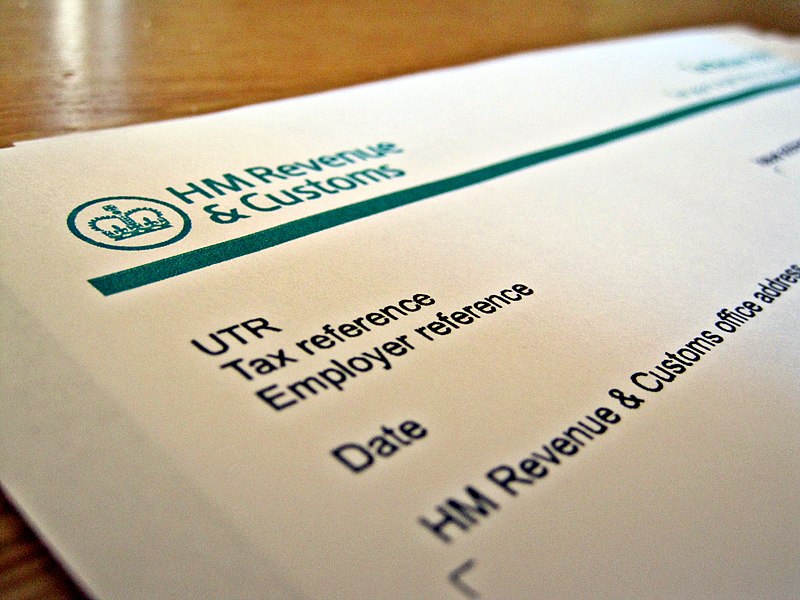
The Institute for Fiscal Studies (IFS) has projected that the UK government is headed towards overseeing the most significant tax increase in its history, dating back to when records began.
The IFS predicts that taxes will make up approximately 37% of the national income by the time of the next general election scheduled for 2024. This level has not been witnessed since 1948, shortly after the conclusion of World War Two.
In response to this report, a spokesperson for the Treasury emphasized that the most effective form of tax relief they could offer is to combat inflation. Treasury Minister Andrew Griffith underscored the priority of curbing inflation while refraining from ruling out potential future tax hikes during a recent interview with Times Radio.
"We believe that you need a strong economy, one built on stable foundations, which is why reining in inflation is so crucial; this has been the priority set by the Prime Minister," Griffith remarked.
Simultaneously, newly released statistics from the Office for National Statistics (ONS) indicate that the economy experienced more significant growth than initially estimated during the first quarter of the year. The Gross Domestic Product (GDP) rose by 0.3% as opposed to the earlier figure of 0.1%. Nevertheless, for the April to June period, the ONS kept its previous reading of 0.2%, leaving the economy 1.8% above pre-pandemic levels.
Grant Fitzner, the Chief Economist at the ONS, commented that the GDP growth rate has remained relatively steady over the past 18 months.
Chancellor of the Exchequer Jeremy Hunt asserted that "the British economy rebounded from the pandemic more swiftly than previously anticipated," with the new statistics disproving skeptics.
Taxation on the Rise The IFS report forecasts that in the upcoming year, the government will collect over £100 billion more in taxes compared to levels before 2019.
Some Conservative Members of Parliament have been pressuring Chancellor Jeremy Hunt to reduce taxes in the government's autumn statement scheduled for the following month. Nevertheless, Hunt recently stated that tax cuts were "virtually impossible" at the current time.
The IFS analysis comes on the eve of the Conservative Party Conference in Manchester, which begins this Sunday.
The IFS report highlights that the government is currently collecting a higher percentage of national income in tax revenue than at any point since the 1940s. In recent years, the government has announced several tax-raising measures, including an increase in corporation tax from 19% to 25% and a levy on profits generated by energy companies.
The IFS points out that the available tax revenue data only extend back to 1948. Since 1900, government revenues have grown by a comparable margin during and immediately after the two World Wars. This marks the most substantial increase in government revenues in the last 123 years.
Paul Johnson, the Director of the IFS, explained that "over this parliament, it looks like taxes will rise by about 4% of national income, which is roughly £100 billion." He added that the UK's tax collection rate remains around the average for wealthy nations and is lower than in the rest of Europe.
Mr. Johnson further suggested that Britain is still a relatively prosperous country but cautioned against the idea of combining European-style welfare programs with an American-style tax system, deeming it unfeasible.
Ben Zaranko, a Senior Research Economist at the IFS, clarified that the high tax rate is not primarily a direct consequence of the pandemic but instead results from decisions to increase government spending. These decisions are partly driven by demographic shifts, healthcare system pressures, and the partial reversal of austerity measures.
Liz Truss, who launched the Conservative Growth Group to advocate for tax cuts and free-market policies, stated that the unusually high tax burden is a contributing factor to the stagnation of the British economy.
Another Conservative member, John Redwood, suggested that there are affordable tax cuts available, including raising the VAT threshold for businesses and reducing fuel duties.
In a recent interview, Chancellor Rishi Sunak emphasized that halving inflation by the end of the year was the most important among the five pledges he made in January. Inflation stood at 10.7% between October and December 2022, and the government aims to reduce it to 5.3%.
Labour criticized the Tories for overseeing "13 years of low growth and stagnant wages." They argued that British citizens have faced 25 tax increases under Conservative rule, putting additional pressure on household budgets.
The Liberal Democrats accused the Conservatives of "crashing the economy" during Liz Truss's tenure and forcing the public to bear the brunt of their actions. They noted the inconsistency between the Conservative promise not to raise taxes and the current reality of high taxation. Photo by Images_of_Money's profile, Wikimedia commons.



































